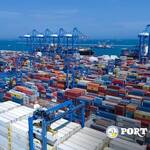No country in the world is untouched by corruption including illicit financial flows. It affects least developed countries and advanced economies alike.
Corruption can take many forms, for example bribes by businesses to politicians or officials to obtain licences or to bypass regulations.
Corruption undermines the rule of law and stifles economic development and growth. It is usually a symptom of poor governance.
Corruption is still an unnerving problem in Africa and indeed the major cause of underdevelopment.
This year’s African Union Anti-corruption Day on The theme “Strategies and Mechanisms for the Transparent Management of Covid-19 Funds” is not only apt, but very important.
It seeks to draw global and continental attention to the need to address a disturbing corruption problem associated with Covid-19 pandemic which severely tasked many economies and brought social and even political dislocations in Africa.
The Africa Union estimates that $140 billion is lost through corruption annually.
This is equivalent to the Gross Domestic Product (GDP) of all but five countries in Africa.
To put this in another perspective, this amount can ensure uninterrupted power 24 hours a day to every citizen in Africa for 3 years.
There is also an urgent need for member states to collectively take steps to diligently implement the recommendations of the Mbeki report on Illicit financial flows which found that the African continent suffers an annual loss of over $50 billion as of 2015 through illicit financial flows (IFFs).
That figure has since risen to over $80 billion.
It also remains concerning that national and continental transparency initiative and efforts to stem the unbridled illicit financial flows from Africa to the Northern hemisphere has been embroiled in complex international politics
While noting that the problem of illicit financial flows cannot be solved post-haste, Africa must continue to stand together and push for a world order that discourages resource and trade price manipulation structured to fritter resources from Africa and keep the continent perpetually undeveloped.
Corruption and illicit financial flows are twin evils which continue to constrain Africa’s progress and development.
The UN Office on Drugs and Crime (UNODC), in its Strategic Vision for Africa 2030 launched in February 2021, notes that illicit financial flows remain a key impediment to Africa’s attainment of the 2030 Agenda and the African Union Agenda 2063.
Stemming the inflow and outflow of money-laundering linked to terrorism, organized crime, corruption and other crimes would make a significant contribution to economic growth, the vision states.
Tackling these leakages would enable African countries to provide their citizens with basic social services, such as adequate water, sanitation, electricity healthcare, and housing
According to United Nations Conference on Trade and Development (UNCTAD), Curbing IFFs can almost halve the $200 billion annual financing gap Africa faces to achieve the sustainable development goals (SDGs).
Sadly, many practitioners lack the recovery expertise to enforce, prosecute and confiscate assets
African countries owes it a duty to increase their ability to trace and recover laundered assets from human trafficking, corruption and wildlife crime, as well as other types of crime, with the forfeited assets being used to support development.
In line with the AU Common African Position on Asset Recovery, effective, accountable and transparent institutions are required to effectively address corruption and accelerate the repatriation of assets stolen from Africa.
Member Governments must adopt and implement effective legislation on declaration of assets and civil asset recovery and forfeiture as part of anti-corruption measures.
Heads of Governments must provide adequate resources to Anti-Corruption Agencies.
Heads of Government and international community have a duty to strengthen collaboration towards speedy and unfettered repatriation of recovered assets to African Countries.
Corruption in all forms must be tackled more vigorously with stronger local, regional, and international cooperation and collaboration among anti-corruption agencies on the continent.
Countries must enhance the capacity-building of investigators and prosecutors of corruption offences, and to support the speedy and unfettered repatriation of recovered assets.
Governments are duty bound to provide anti-corruption agencies with adequate resources to monitor, prevent, and prosecute corruption.
It is important to note that success in the fight against corruption is dependent on joint efforts and initiatives by all stakeholders and the public.
In addition, societal and cultural perceptions remain critical in the drive against practices which lead to corruption
- Tight Race For Next GIS Boss - 10 March 2025
- Church of Jesus Christ, Ga Mantse Foundation renovate Adabraka School - 27 June 2024
- Manufacturers, Trade Minister tussle over proposed cement price regulation - 26 June 2024

